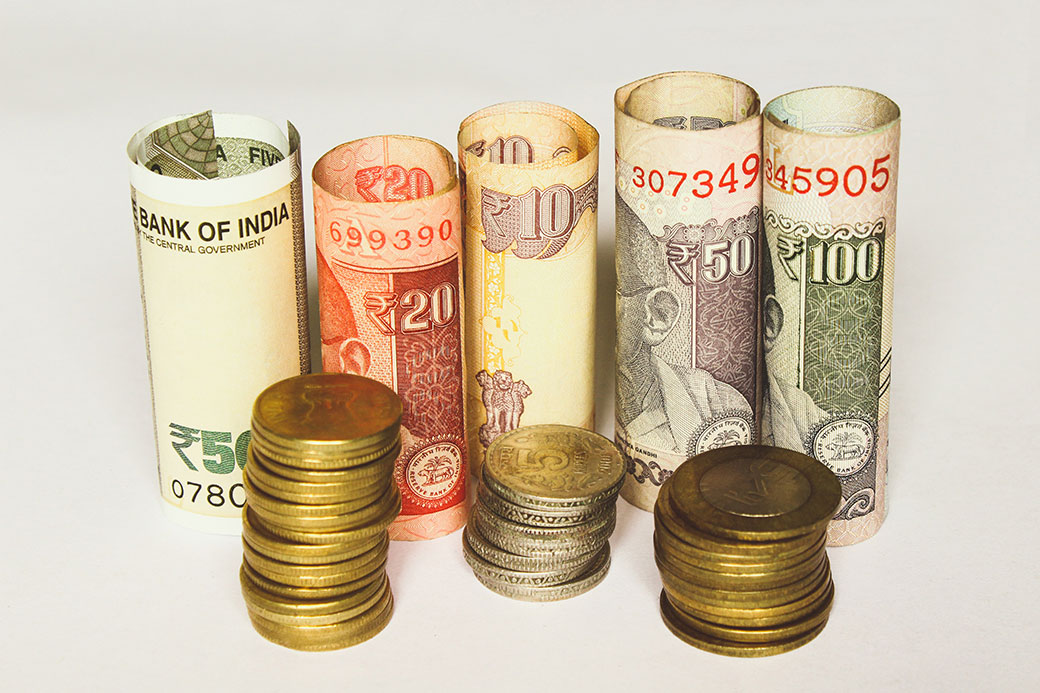The Best Money Tips for Budgeting and Saving

Pretty much everybody wishes they didn’t have to worry about personal finance. But unfortunately, you can’t wave a magic wand and make money problems go away. You can’t ignore the need to budget and save for the future.
Many people see budgeting and saving as too difficult and too complex. However, there are ways to go about it that make budgeting and saving easier. But first, you have to understand why confronting the state of your personal finances is important.
WHY SAVINGS AND BUDGETING ARE IMPORTANT
One reason that budgeting and saving are important is that these practices put you in charge of your money, instead of your money being in charge of you. When you budget, you’ll be able to get a better grip on how and how much money flows into your bank account, and what you can do to make more of it stay there. And when you learn strategies around saving, you’ll learn about investing the money you do save, so it can grow.
When you take a look at your spending, you’ll probably realize that you waste more money than you want to. You can reflect on your spending and think about areas where you shouldn’t be spending so much, or spending at all.
Saving money is also important to help prepare for emergencies. There will always be unexpected situations that come up from time to time, and you might have to dig into your savings to cover life’s surprises, big and small.
Recent lockdowns provided a good example of this; according to the Pew Research center, one out of four adults were having difficulties making ends meet; one in three had to dip into their retirement savings to keep up on regular expenses, while one in six had to borrow money just to pay their bills.
If these struggling people had an active savings plan, their personal finances wouldn’t have been so impacted by the pandemic. They could live off their savings until stimulus checks were issued or the world returned to normal.
If you’re wondering where to start with saving and budgeting, here are a few tips:
1. Start by Writing Down Savings Goals
One of the first and most important steps in this saving and budgeting process is to write down all the goals you hope to achieve in a given period, and what they’ll cost. You should even write down the dreams that seem far off. To make them more tangible, you can put them on something like a vision board.
Another way to make writing down your financial goals effective is to add deadlines and strategies. For example, if you plan to save $50 every week…
It’s okay not to have answers to these questions right away. The point is just to start working on a plan. You can figure out the process as you continue to grow. But the advantage to writing down your process and your milestones is that meeting the targets you’ve set will inspire you to continue.

2. Track How You Spend Money
A lot of people do not like this part of their money management process, but it’s important to take this part seriously. There are several ways to track your spending. Many banks these days provide a visual breakdown of spending through your online banking, like a pie chart. You can do it yourself manually, with a spreadsheet. There are also apps that connect to your credit and debit cards. Whatever you choose, the main point is that your budgeting will show you your spending patterns. You might be shocked by where your money goes.
Nobody wants to hear that they are financially irresponsible, so when they sit down to track their spending, they often (genuinely or conveniently) forget to add certain purchases or expenses. One way to avoid missing these purchases is to use one card for everything, and to avoid using cash as much as possible.
You’ll probably find that there are a lot of spending patterns that fly under your radar because they are such small, regular everyday purchases. We see them as little and inconsequential, but when you track your spending correctly, you will know just how not-so-little and consequential they are over time. Common examples include (sorry to say) daily Starbucks.
Here are a few great apps that can connect to your bank account and track spending:
If you are not so much of an app person, you can create a spreadsheet yourself, and there are several budgeting money worksheet options on the internet. There’s also the old-fashioned way of pen and paper. For some people, the visceral experience of actually writing out their spending really makes it all sink it. It’s good to set aside some dedicated accounting time to review your spending, whether that’s weekly or monthly. The most important thing is discipline and commitment. There is no shortcut to doing this work (unless you have an app do it for you).
3. Make a Realistic Budgeting and Saving Plan
Budgeting is perhaps the biggest part of effective money management. Contrary to what a lot of people think, budgeting money doesn’t strong-arm you into a spending prison.
The essence of an active budget is not to restrict you, but to guide your spending. Once people hear about budgeting, they immediately think they will be prevented from buying all of the things they love and enjoy. But that’s not what budgeting is about. Budgeting simply guides you to avoid spending irresponsibly.
This is not to say that budgeting doesn’t make certain changes to your spending habits; it does, but those changes are solely determined by you.
Essentially budgeting begins with a review of your spending; whatever restriction, additions, and removals you want to do is completely dependent on you.
The first thing you want to do when budgeting is to take note of every income stream you have, and just how much comes in for you during a given year, month, or a week. This is easy when you have a consistent paycheck. When you work for yourself, you have to really sit down and determine the exact amount.
The next thing you need to do is write down every anticipated expense during your chosen time period.
Determine your fixed expenses, things like rent or mortgage, electricity, Internet, groceries, transportation, and your student loan. All of these expenditures must be listed, and then you can list all the variable expenses, like entertainment, self-care, luxury spending, etc.
Keep in mind that some fixed expenses do vary in the amount from month to month. They’re only considered fixed because they’re charged consistently…like a utility bill. If you want a good number to work with, average out the last six months of this expense and use that as your number moving forward. Once all of this is determined, make necessary adjustments, changes, and removals. You may realize you really can’t afford Netflix, Hulu, and Disney every month, along with a daily Starbucks.
Sometimes it’s also helpful to consider a yearly time period in addition to a month or week. Maybe you think streaming Netflix, Hulu, and Disney every month is fine…but how much is that costing you per year? Three different subscriptions could add up to a car payment. You’ll have to decide what gos and what stays.
For more tips for budgeting money, check out these planners on Amazon:
4. Plan for Emergencies
Emergencies are inevitable, and there will always be one thing or the other that you didn’t plan for…but you don’t have to be unprepared. Planning for emergencies sounds paradoxical, but it is the best way to maintain good financial health despite unexpected large costs.
When budgeting, you have to make sure to set aside a percentage of your income for emergencies into a rainy day fund. This rainy day fund could be separate from your savings account. The good news is that if nothing happens, you get to add that to your savings. So, it’s a win-win for you: you are prepared to manage any unforeseen situation, and in absence of one, get to boost your net worth.

5. Understand What Savings Plan Works for You
There are several saving and budgeting templates, and loads of apps designed to help you budget and save. Not all of these tools are the same, and an app that works well for one person might not work so well for another. Part of it might just come down to the look, layout, and user experience of the app.
Once you have determined how much you can save and how to track your spending, what you do is figure out a personalized saving process that will include such things as a timeline for your goals; what are your weekly, monthly, and annual goals in terms of budgeting and saving? Part of that process involves considering how often you get paid at your job or make money from your business. We are all different. Just like fashion and food choices, a budgeting and saving plan that works for you might not work for someone else, and vice versa.
If you need help budgeting money, developing a short term goal is a great way to get started. That short term goal will vary from person to person. For one person, it might be a rainy day fund of $1,000. For another, it might be paying off their car loan. Sometimes it’s good to give yourself a little reward, like buying a new outfit when you’ve made it to your rainy day fund goal, or going on an overnight trip when you’ve paid off that car.
Once you’ve had success with your first goal, it’s good to get out of your comfort zone and save towards something bigger. Meeting this new target will encourage you to save more and aspire to bigger goals. Before you know it, goals that once looked unreachable will be goals you can easily reach. We all want and deserve the best things in life, and with a little more intentional action, we can have them…even the ones that seem impossible.
Believe it or not, learning to budget and save can impact your character too, in a positive way; getting more intentional about your personal finances can change your outlook on life and your perspective on the world. Budgeting and saving can put you in charge of your life, giving you the confidence to try new things, to believe in yourself, and to dream even bigger.
You’ve got this!
If you would like to know more on budgeting and savings, you can read these articles:
Extensive budgeting research: https://www.ijeat.org/wp-content/uploads/papers/v8i3S/C11550283S19.pdf
The 70-20-10 rule or the 50-30-10 rule on budgeting: https://www.educationcu.com/should-i-use-the-70-20-10-rule-for-my-budget/

Are you a savings and budgeting beginner? Or have you been a saver and budgeter for a while? What are some of the budgeting money tips, savings apps, or hacks that have helped you?
Let us know some of them in the comments below!






Leave A Comment